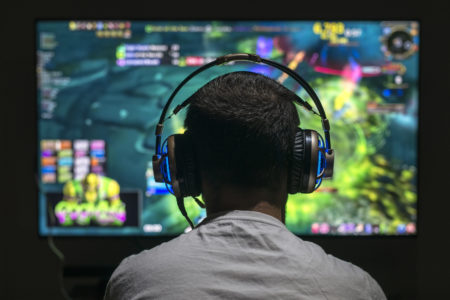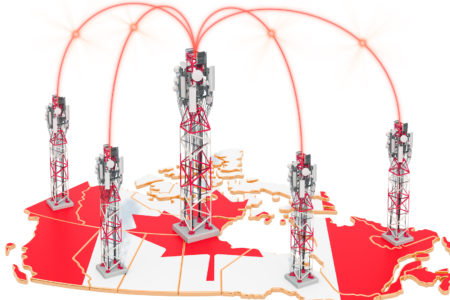
In 2017, it became clear that democracy is under digital attack. The year began with the historic public report by US intelligence agencies on Russian interference in the 2016 election. As the months went by, investigations by journalists, researchers and government agencies exposed more evidence of interference. Further examples of digital interference were seen in France’s presidential election, Germany’s parliamentary election and Kenya’s presidential election — which was run twice in 2017, in part because the country’s supreme court feared that the voting system had been hacked.
Countries around the world face digital threats. The first steps to secure democracy are to admit that we have a problem and to gain some clarity on what the problem is.
To contribute to that discussion, the Centre for the Study of Democratic Institutions at the University of British Columbia has released Digital Threats to Democratic Elections: How Foreign Actors Use Digital Techniques to Undermine Democracy. Working with Jordan Buffie, Spencer McKay and David Moscrop on a project funded by the Social Sciences and Humanities Research Council, I pored over existing research to propose a cyberthreat assessment for democratic elections. Our report clarifies how democracies are threatened by foreign actors using digital techniques, why countries and citizens are vulnerable and what solutions might exist.
Here are five key observations and their implications for digital threats to elections in Canada.
1) Foreign actors have developed an arsenal of digital techniques to advance their aims
A variety of foreign actors have used digital techniques to influence and undermine elections (for a summary, see the chronology below). While Russia has received the most attention, states from North Korea to the UK have digital troops, trolls and troublemakers at the ready for information operations. Nonstate actors also interfere in elections, from transnational far-right movements to profit-seeking Macedonian teenagers.
Some foreign actors promote particular candidates, policies or ideologies, and others seek to delegitimize governments or enflame social tensions. The report Digital Threats details four general techniques that figure prominently in accounts of foreign interference:
- Hacking attacks target systems, accounts and databases, with the aim of accessing, changing or leaking private information. These range from system intrusions in Ukrainian and US voting systems to the hacking of communications among senior officials in the Democratic National Committee (DNC).
- Foreign actors mount disinformation and propaganda campaigns to promote false, deceptive, biased and inflammatory messages, often using bots or fake social media accounts. These campaigns include the fake news that flooded the US elections, such as stories about the Pope endorsing Donald Trump’s candidacy, as well as bot-driven messaging in the French election, primarily directed against Emmanuel Macron, and in the German election, primarily supporting thefar-right Alternative für Deutschland.
- Foreign actors acquire data about populations or individuals to develop messages for microtargeted manipulation. For instance, Russian actors targeted swing state voters with Facebook ads and orchestrated competing demonstrations in Houston that supported and opposed Muslims.
- Foreign actors mount online trolling operations. Politicians, journalists and activists from Turkey to Mexico to the US have received online — and often anonymous — death threats. Trolling culture from sites like 4chan has oozed outward, as seen in memes and doxxing tactics of far-right and white supremacist groups, including in the lead-up to the recent German elections.
These techniques are often used in combination. For instance, Russia-linked actors not only hacked and leaked the DNC’s emails, they also trolled Democratic politicians and promoted stories and memes that would aggravate tensions between supporters of Hillary Clinton and Bernie Sanders.
2) These digital techniques may not determine election outcomes, but they do weaken or hijack our democratic processes
No study to date has shown that foreign digital interference changed the outcome of an election. So it’s no big threat? Wrong.
For starters, such proof may still come. It is very difficult to distinguish the impact of just foreign and just digital actions from everything else going on in a campaign. Cyberoperations are often hidden and hard to attribute: even under the full glare of American media and governance investigations, evidence of foreign activities has merely dribbled out.
Moreover, there is clear evidence that these digital techniques are harming some critical elements of democratic elections.
First, democracy means that citizens have fair opportunities to participate in political activities, including voting, running for office or contributing to political debates. Evidence shows digital techniques are used to diminish some people’s participation and increase others’. For instance, opposition parties and activists in many countries are hacked and threatened online. Women and minority groups face harassment, stigmatization and physical danger.
Second, democracy requires public deliberation that builds on citizens’ insights and perspectives. Foreign actors actively degrade such processes by pumping out misinformation and hijacking news cycles (for example, the leak of hacked emails from Jon Podesta, head of the Clinton campaign, took over the headlines just hours after the release of the infamous Access Hollywood video, which was damaging to Trump). More broadly, trolling operations attack the very foundations of productive deliberation by citizens by sowing hatred and misunderstanding among them.
Third, fair elections require rules and institutions. Hacking attacks have compromised voting systems and electoral commissions; some have violated electoral laws in the US and other countries, such as those limiting foreign campaign contributions.
As these elements are degraded by digital operations, elections become less fair, legitimate and democratic.
3) Foreign actors have willing domestic accomplices, including politicians and social media companies.
Foreign actors are not alone in using digital techniques to undermine democracy. Domestic politicians, parties, media organizations and citizens use similar techniques. And they often serve as de facto accomplices in foreign operations.
This partnership between foreign and domestic actors was clear in the 2016 US election. Foreign actors used their bot and troll networks to amplify divisive messages and conspiracy theories created by Americans. At the same time, American politicians and news organizations promoted hacked documents and false stories created by foreign actors. During the campaign, Trump publicly called for Russians to hack Clinton’s email and mentioned WikiLeaks 164 times, and Trump’s colleagues and Donald Trump Jr. held back-channel communications with WikiLeaks.
The 2017 French and German elections also saw coordinated actions between foreign and domestic actors, primarily on the political far right, to push misinformation and social conflict.
Canadians have been involved in these efforts. A correspondent with Canada’s Rebel website helped push the spread of leaks damaging to Macron in France. AggregateIQ, based in Victoria, BC, provided assistance to groups within the Brexit Leave campaign, a partnership that is being investigated as a possible violation of privacy and electoral regulations.
4) Countries and individuals have different vulnerabilities to digital interference
One striking observation about foreign interference in the French presidential elections was its ineffectiveness. Bots were less influential there than in the US. The #MacronLeaks campaign was largely a flop: French news media handled the leak circumspectly, and bots promoting the leak were mostly engaged by foreigners on the far right.
Why the difference? Was it because the interference operations were done poorly? Was it the French electoral commission’s prohibition on publishing hacked documents during a legal blackout period preceding the election, and its call for media and citizens “à faire preuve d’esprit de responsabilité” (to demonstrate a spirit of responsibility)? Was it the different media environments and political cultures? It’s not clear.
Too much attention to the US case may prevent Canada and other countries from identifying their own particular vulnerabilities to digital interference and sources of resilience. Cross-national research is thus needed to identify key vulnerabilities and how they differ across countries. Drawing on existing research, we propose five key sources of vulnerability:
- deficits in people’s digital literacy and data protection,
- shortcomings in the design and policies of social media platforms,
- high levels of polarization in political cultures and media systems,
- inadequate electoral regulation, given today’s digital realities, and
- gaps in international laws and practices when it comes to stopping cyberattacks and information operations, and holding their perpetrators responsible.
5) Laws and electoral regulations are inadequate and out of date
It is clear that election regulations need to be reformulated in a digital era. In the US and elsewhere, foreign actors have used social media in ways that violate the letter or spirit of regulations on political advertising, campaign financing and other activities by foreign actors. Several US senators proposed the Honest Ads Act to improve the transparency of social media ads and clarify regulations prohibiting foreigners from buying political ads. But there are no clear policy proposals for addressing the unpaid distribution of content, so-called “organic posts,” that foreign actors can use to promote misinformation or foment social conflict.
Action also needs to be taken to combat online harassment and hate speech. For instance, Germany passed a law requiring social media companies to create robust complaint processes, and to remove obviously illegal hate speech within 24 hours or face serious fines.
The Canadian government and, in particular, the office of Democratic Institutions Minister Karina Gould are seized with these issues. The Commissioner of Elections Canada and the Canadian Senate have identified some major changes that are needed. But, to date, we have seen no significant proposals. The main development in 2017 came from Facebook itself, which launched its Canadian Elections Integrity Initiative. While the initiative promises more advertising transparency and security assistance for politicians, the measures are widely seen as inadequate.
The threat of foreign digital interference has become clear. What should Canadians do?
First, we need to learn more. There are big gaps in knowledge: about vulnerabilities to interference, about the real impact of these digital techniques and about the impact of solutions. Learning more requires not just more research but better access to data held by social media companies that may reveal foreign operations and their effects.
Second, the Canadian government needs to quickly develop serious proposals to update election regulations, if they are to be in effect by the 2019 federal election (not to mention the 2018 provincial elections in Ontario, New Brunswick and Quebec). These need to clarify what is prohibited and how prohibitions will be enforced. We also need a streamlined process to inform the public when foreign information operations are occurring, in order to avoid the delays seen in the US case.
Third, we need serious public conversations about how social media platforms and law enforcement can better address threats, hate speech and forms of online harassment that attempt to selectively weaken democratic participation by some people and groups. We also need fresh ideas to improve the quality of public discourse on social media platforms, including through government regulation and platform self-regulation. (For some excellent recommendations, see Fenwick McKelvey’s recent contribution in Policy Options.)
Fourth, Canadian voters need to prepare ourselves for campaigns that seek to turn us against each other, beyond the reasonable passions of partisan competition.
One clear conclusion of our report is that foreign digital operations take advantage of existing weaknesses in democratic institutions and societies. While it is important to anticipate and deal with foreign interference, the best defence is to strengthen democracy at home.
Photo: Shutterstock, by sdecoret.
Do you have something to say about the article you just read? Be part of the Policy Options discussion, and send in your own submission. Here is a link on how to do it. | Souhaitez-vous réagir à cet article ? Joignez-vous aux débats d’Options politiques et soumettez-nous votre texte en suivant ces directives.








